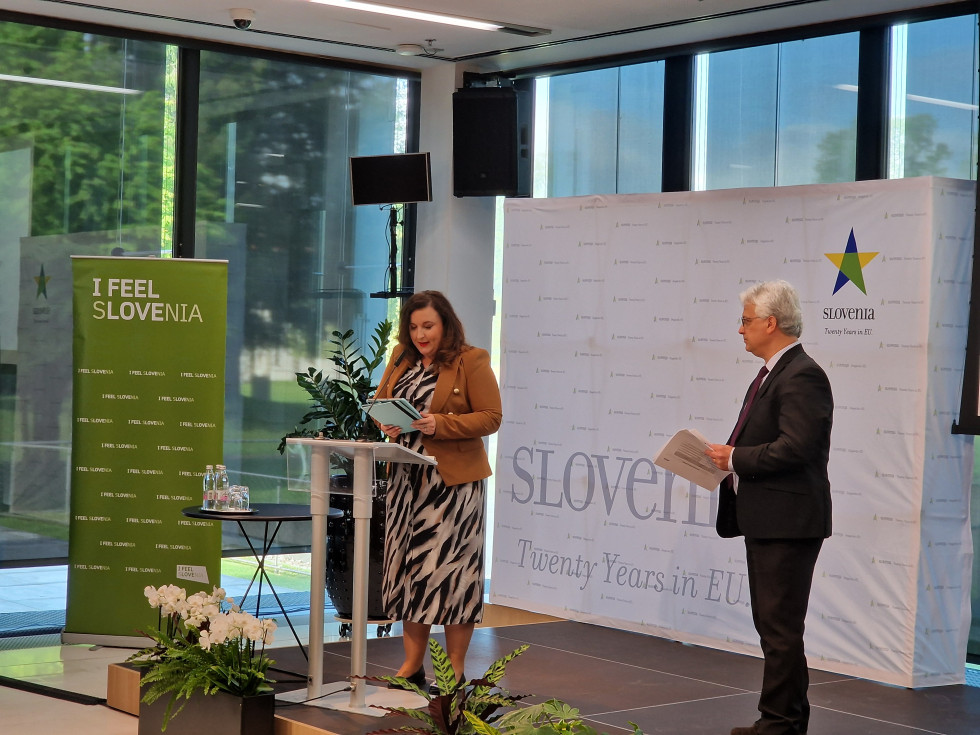Seminar on the challenges of communicating EU enlargement and the importance of resilience against disinformation
A conference, held as part of the program commemorating the 20th anniversary of Slovenia's EU membership, was attended by approximately 80 experts at Brdo pri Kranju. The meeting of government and non-government communicators offered valuable insights into combating disinformation and promoting EU integration. Communication professionals emphasized the importance of transparent communication through traditional and digital channels. This, they argued, is crucial for ensuring that citizens understand the direct impact of EU policies on their lives and encourages their active participation in EU democratic processes.
The conference was opened with welcoming addresses by Petra Bezjak Cirman, Director of the Government Communication Office, and Vincenzo Le Voci, Secretary-General of the informal association of top communication experts from EU member and candidate states, as well as European institutions - the Club of Venice. Both emphasized the importance of discussions at the seminar. Following them, the Minister for Digital Transformation, Emilija Stojmenova Duh, addressed the attendees. She emphasized the government's commitment to combating disinformation, expressed satisfaction with the adoption of the EU's AI Act, and drew attention to the UNESCO AI conference held in Slovenia. She highlighted the importance of aligning legal frameworks online with those offline and the crucial need for improved digital literacy to increase public awareness.
Strong Impact of Emotions on Public Opinion
In the first part of the conference, speakers exchanged views on the state of European legislation, media landscape, and digital connectivity in the fight against disinformation. Speakers pointed out the strong impact of emotions on shaping public opinion and emphasized the importance of building trust. The discussion on the Digital Services Act and the Media Freedom Act revealed ongoing efforts and the need for systematic approaches to risk mitigation. Speakers emphasized the importance of clear guidelines and robust regulatory frameworks to ensure media integrity.
The role of government communicators and media in combating disinformation was explored from various perspectives, examining disinformation narratives and strategies to counter them. It became evident that strategic communication, preemptive debunking of disinformation, and fact-checking are crucial tools in this fight. Experts agreed on the crucial importance of societal resilience to disinformation. They emphasized the need to educate young people about fact-checking and building a societal approach that encourages cooperation between countries and different sectors.
Different Levels of Support for EU Project
The second part of the conference focused on EU enlargement. Speakers pointed out lukewarm interest in EU membership in some candidate countries. There was a call for stronger political will to advance both enlargement and reforms. Opportunities for such changes are limited, and member states need to be more effective in fulfilling their commitments.
Discussions revealed varying degrees of support for the EU project in member states. This is influenced by evolving political priorities and new international challenges that impact public opinion at different stages of EU membership. This highlights the importance of continuous capacity development and information exchange even after joining the EU. These efforts should be grounded in consistent communication and public engagement from both national and European stakeholders.


